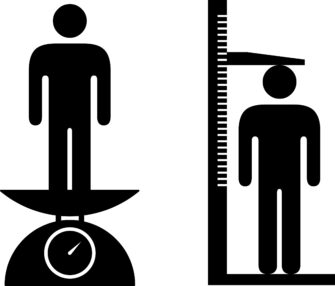Allgenesis Biotherapeutics Inc. v. Cloudbreak Therapeutics, Inc. (Fed. Cir. 2023) | McDonnell Boehnen Hulbert & Berghoff LLP
The Federal Circuit dismissed an appeal from an unsuccessful challenger in an inter partes review (IPR) proceeding based on failure to satisfy the standing requirements for appeal in Allgenesis Biotherapeutics Inc. v. Cloudbreak Therapeutics, Inc.
The case arose in an IPR over U.S. Patent No. 10,149,820, directed to compositions and methods for treating pterygium, “an eye condition in which a tumor-like growth extends from the nasal or temporal side of the eye to the cornea.” Surgery was the recognized treatment, and also recognized was the likelihood of tumor recurrence. The ‘820 patent claims use of multikinase inhibitors including nintedanib, pazopanib, and sunitinib.
Nintedanib
Claims 4 and 5 were the only claims remaining after the IPR; claim 4 was set forth as representative:
1. [disclaimed] A method for reducing hyperemia or symptoms thereof in pterygium in an affected eye of a subject in need of such treatment, without surgically excising a pterygium, comprising administering to the affected eye of the subject a therapeutically effective amount of a multikinase inhibitor.
3. [disclaimed] The method of claim 1, wherein the multikinase inhibitor is administered to the affected eye in the form of topical ocular formulation or ocular implant.
4. The method of claim 3, wherein the multikinase inhibitor is nintedanib and the nintedanib is administered to the affected eye in the form of a topical ocular formulation and is administered topically to the affected eye.
Relevant to the issues on appeal, the Board held that Allgenesis had not shown the remaining (not disclaimed) claims of the ‘820 patent were invalid for anticipation or obviousness over its own PCT application because the earliest priority date for the ‘820 patent (June 5, 2015) was earlier than the priority date of the PCT application (June 22, 2015) and Cloudbreak’s provisional application provided sufficient written description support for claims 4 and 5 of the ‘820 patent. The Board also determined that the ‘820 claims were not obvious in view of the combination of two other references because of the ‘820 patent’s disclosure of unexpected results of improved efficacy and safety. Allgenesis appealed both grounds of the Board’s determination of non-obviousness.
The Federal Circuit dismissed the appeal based on Allgenesis’ failure to satisfy Article III requirements, in a decision by Chief Judge Moore joined by Judges Stoll and Cunningham. The opinion sets forth the basis for Allgenesis’ deficiency as being rooted in the requirement for standing of injury in fact under Spokeo, Inc. v. Robins, 578 U.S. 330, 338 (2016). This requirement, while not arising for standing to file an IPR petition, Cuozzo Speed Techs., LLC v. Lee, 579 U.S. 261, 279 (2016), is required to appeal the Board’s decision under Consumer Watchdog v. Wis. Alumni Rsch. Found., 753 F.3d 1258, 1261 (Fed. Cir. 2014). Allgenesis asserted standing based on “(1) its potential infringement liability and (2) the Board’s priority determination.” Neither assertion was sufficient, according to the opinion, because Allgenesis’ allegations of injury were speculative and insufficiently concrete to establish injury in fact. With regard to potential liability for infringement, the opinion states that the evidence, a declaration from Allgenesis’ Vice President of Finance, relied on a Phase II clinical trial in 2020 and vague assertions of future plans to produce a nintedanib commercial product. The opinion found these assertions to be unconvincing, saying that they “fail[] to identify any specific, concrete plans for Allgenesis to develop a nintedanib product that might implicate claims 4 and 5 of the ‘820 patent.” Nor did Allgenesis provide testimony regarding plans for further development such as a Phase III trial. Instead, according to the panel, Allgenesis provided “generic” statements that it had not abandoned plans for a commercial product. However, according to the opinion, “[s]uch conclusory testimony is insufficient to establish that Allgenesis has any concrete plans to develop and bring to market a nintedanib treatment for pterygium.” Nor did Allgenesis assert any threat from Cloudbreak to file suit for infringement. The panel concludes that “Allgenesis has failed to establish it has nonspeculative, concrete plans for future activity that creates a substantial risk of future infringement.”
Allgenesis was no more successful in its second assertion of injury in fact, that the Board’s decision on priority of invention in favor of Cloudbreak would impair its ability to obtain its own patent on using nintedanib to treat pterygium. Once again, the Federal Circuit found Allgenesis’ evidence and argument to be insufficient to support its injury in fact claim. The opinion analogizes the circumstances with the Court’s earlier decision in Best Medical International, Inc. v. Elekta Inc., 46 F.4th 1346 (Fed. Cir. 2022) (despite significant distinctions between the factual circumstances, recognized by the Court). What the cases had in common, in the Federal Circuit’s view, was reliance on collateral estoppel as the basis for the injury and, as the Court notes, “[c]ollateral estoppel will not attach to the Board’s non-appealable priority determination,” citing SkyHawke Techs., LLC v. Deca Int’l Corp., 828 F.3d 1373, 1376 (Fed. Cir. 2016). And again the Court states that “Allgenesis has, based on these quite vague allegations, failed to establish a concrete injury.” Even when eschewing estoppel arguments Allgenesis “failed to articulate with any specificity how the Board’s priority determination will impact its issued patents or pending continuation applications which claim priority to its PCT application,” those articulations being found in “a single paragraph containing only vague allegations in its opening brief and reply brief, respectively.”
Having decided that Allgenesis failed to establish injury in fact as required for standing the Federal Circuit dismissed the appeal without reaching the merits.
Allgenesis Biotherapeutics Inc. v. Cloudbreak Therapeutics, Inc. (Fed. Cir. 2023)
Panel: Chief Judge Moore and Circuit Judges Stoll and Cunningham
Opinion by Chief Judge Moore
[View source.]





